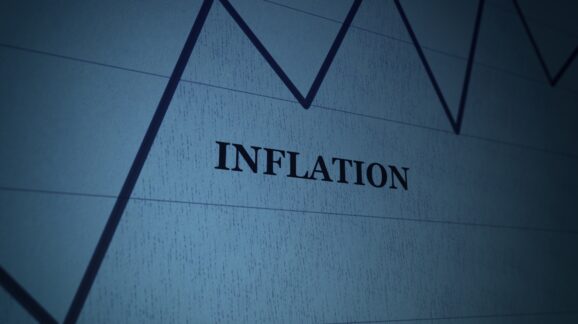Inflation Reduction Act turns one, and wow that’s an ugly baby

Photo Credit: Getty
As President Joe Biden celebrates the one-year anniversary of the Inflation Reduction Act (here’s the White House “Fact Sheet“) we reaffirm that the ambitious endeavors underway to combat the purported “climate crisis” and reshape the economy are accompanied by an alarming centralization of federal government power, the consequences of which jeopardize prosperity, liberty, and the entrepreneurial spirit that drives our nation.
Biden’s repeated promises of building an economy “bottom up, middle out” are instead delivering the opposite; a rising centralization of federal authority recently accelerated in the wake not only of the Inflation Act but of the American Rescue Plan, infrastructure law, and “CHIPS and Science Act” spending. These alarming incursions were launched amid the exploitation and abuse of the COVID pandemic to achieve political ends unrelated to health (see CEI’s report, “The Case for Letting Crises Go to Waste.”)
Along with an abundance of new regulations, the use and abuse of sub-regulatory guidance documents is likely to become more prevalent as the government gets its way over a rising share of business and personal endeavors that are none of its business.
Such directives from agencies like the Federal Trade Commission, Environmental Protection Agency, and Department of Transportation encompass competition policy, climate, environmental justice and more, magnifying the regulatory burden on businesses and individuals alike.
This government overreach entails new strings attached to government funding, in particular regulatory compliance with a willful and calculated political and ideological agenda, such as providing child care services, green energy and renewables commitments, and potential profit-sharing with the federal government (see the favorable New York Times treatment in “Biden Is Betting on Government Aid to Change Corporate Behavior“).
Such mandates will stifle innovation, restrict business autonomy, and exacerbate consumer prices by favoring certain industries and companies based on adherence to specific criteria rather than value added to customers.
Biden this week in Milwaukee once again proclaimed, “I’m a capitalist” but this is false. His policies are non-representative of free competitive enterprise and capitalism, entailing instead dangerous consolidations of federal power over business and the economy.
The administration’s focus on micromanaging industries and markets is unwise. It risks disproportionately impacting the most vulnerable among us despite the creation of “Offices of Environmental Justice” and “equity” alongside these endeavors.
Instead of fostering a vibrant economy that empowers individuals and businesses, these policies can hinder opportunity, abundance, and affordable products and services.
As Biden commemorates the anniversary of the Inflation Reduction Act, policymakers should reconsider the path our nation is treading. Instead of celebrating the funds pouring into their states as they – and yes, “they” includes Republicans – are prone to do, policymakers should insist upon a restoration of federalism.
Those funds should never leave states in the first place. A healthy economy is built on the principles of the limited national government that such federalism enshrines, along with individual liberty, innovation, and open competition.Efforts are underway to repeal green subsidies in Biden’s pet legislative vehicles. These laws should be repealed entirely.
For more on this see Ten Thousand Commandments, and “Biden’s Top-Down Economy — Powered by Executive Action,” in Forbes.